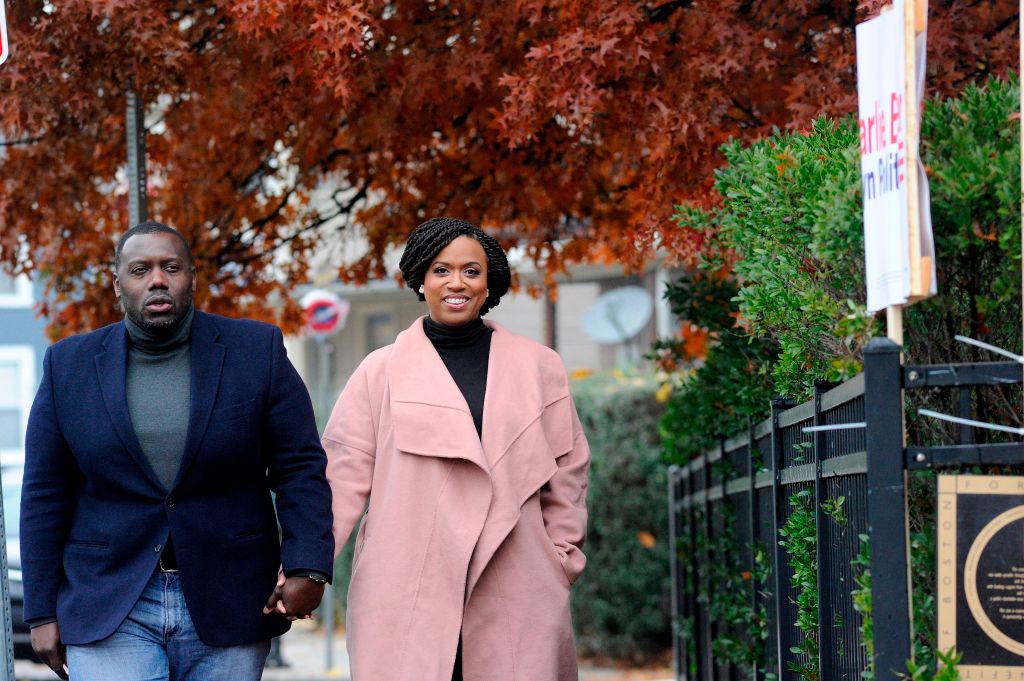The husband of Rep. Ayanna Pressley, Conan Harris, raised the issue of re-entering into his community, specifically finding a place to sleep at night, after serving 10 years for drug trafficking.
On February 27, Harris testified before the House Subcommittee on Crime, Terrorism, and Homeland Security on the issue of citizens re-entering society. During an interview with The Appeal, a news outlet that focuses on criminal justice reform, Harris spoke more candidly on the topic. He spoke in regard to what support looks like when leaving prison and what is it like to re-enter back in society.
"Re-entry, as I talked about in the hearing, starts when you're incarcerated. It is so crucial and important to do the work internally while you're inside the institution before you come out. When I came home, I had to be prepared and ready for the resources that my family and other supports would be able to help me with," Harris told The Appeal. "I think that one of the main things that was supportive was finding a safe place to sleep, rest my head, so I could collect my thoughts."
In the interview, Harris said he is fortunate to have a family willing to stand up for him and who was waiting for him to come home. He was offered a room to stay in until he was ready to get back on his feet.
Harris realizes his privilege, and he is pushing for policies that make it easier for everyone to find opportunities regardless of familial support. For Harris, his education was an additional privilege most formerly incarcerated people might not have. He was an A student before getting locked up.
"Education was a lifesaver for myself. I never knew I could be smart as far as school is concerned until I got my first A in college," Harris said. "When I got my first A, it turned on a switch and it changed my life for the better because now I knew education was a possibility. Now I felt like I belonged, not just in school but everywhere else."
Harris also mentioned introducing Pell Grants for formerly incarcerated individuals to earn their degrees in preparation for their release, which will grant them skills to compete in the job market.
Harris has become an advocate in his community. He had a job at Boston's City Hall as a senior public safety adviser and later transitioned into a new role with the My Brother's Keeper Boston program as an executive director.
When asked about "the major barriers you want to address when it comes to helping people re-entering society find a safe place to sleep at night," Harris said there has to be a "political will" to create more spaces for transitional houses.
"It's the political will to have transitional housing for people," Harris said. "We see cranes up in the air, buildings being built, people being pushed out of their neighborhoods because rent is going up high. But we don't see a political will to have transitional housing for folks coming home from incarceration."
Pressley is working with the People’s Justice Guarantee, a plan to reform the legal system, including the decrease in prison populations, the abolition of cash bail and the ending fines and fees to fund local court systems, among a host of other proposals, The Appeal reported.
However, Harris seeks to make a difference through legislation because "laws have the trickle-down effect to the state and to the city," he told The Appeal.
